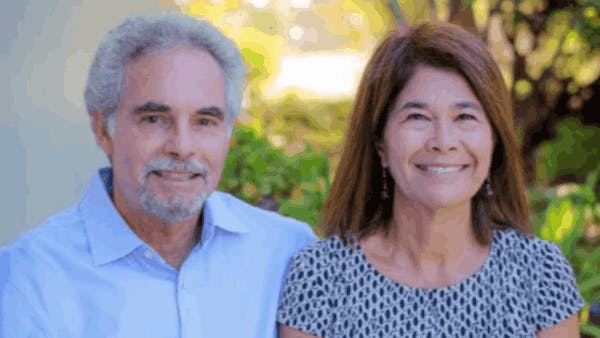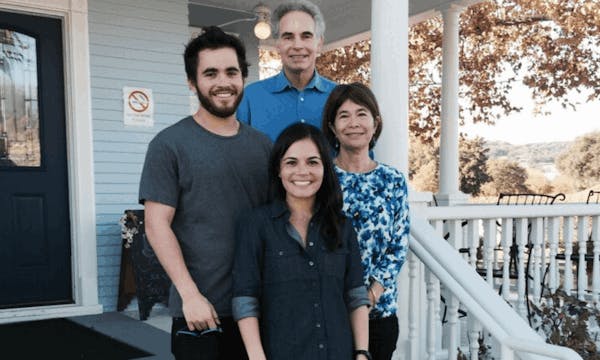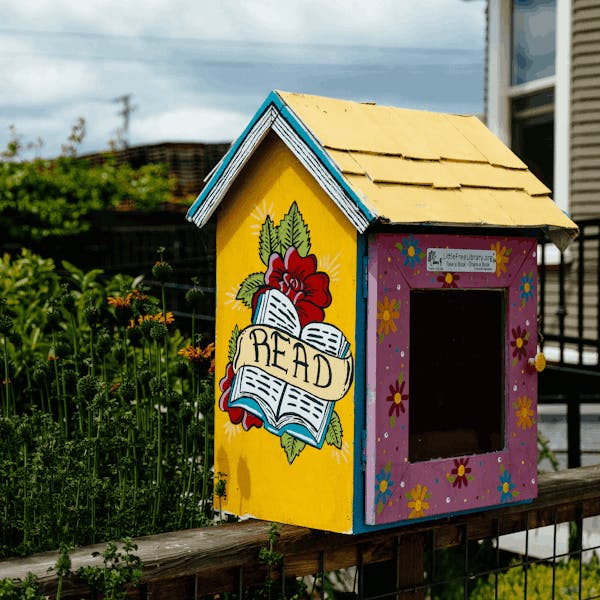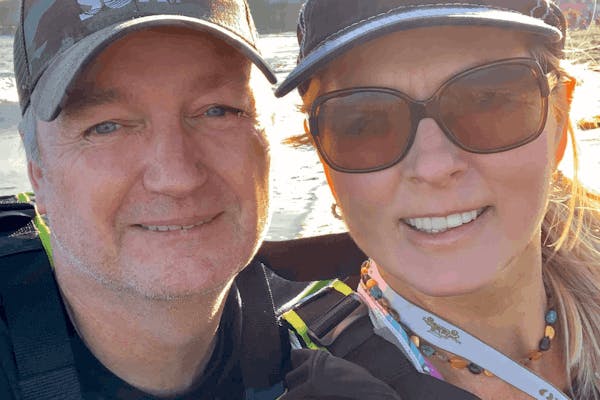
A conversation with Bob Katz & Leola Lapides
Feeling Whole: Giving Now & In the Future
When Leola Lapides and Bob Katz give, they give their all.
“I guess you could say that in addition to financial contributions, we have put a lot of sweat equity into many of the organizations we care about. That helped us become better aware of what the organizations’ needs were and how best to help,” says Leola.
Calling Santa Cruz County home since 1979, Bob and Leola have done A LOT of helping. Between them they’ve volunteered for, served on the Board of Directors, and advised beloved local nonprofits including Monarch Services, Watsonville Law Center, CASA, the Community Foundation, and the Cabrillo College Foundation.
Local Inspirations
While they also care about and contribute to causes on the international and national level, most of their giving is local Leola says, “There’s something really special about Santa Cruz County.” In part, it is the size, she thinks. “Maybe we are a small enough county that we know each other and can make things work.”
“Or maybe it is the creative people,” Bob chimes in.
Whatever it is, Bob and Leola feel that nonprofits in Santa Cruz County are the incubator for new ideas and solutions that get replicated all over the country. “Look at Life Lab. Their science education model is used all over the country and it started right here. Or the use of Sexual Assault Response Teams which was pioneered by Monarch Services,” says Bob.
“And the CASA house,” says Leola, referring to the permanent home owned by CASA, Court Appointed Special Advocates, a national organization with almost 1,000 affiliates across the country, but only a handful with their own property. As board and campaign chair at the time, Leola was very involved in the fundraising efforts. “The house provides such an important sense of stability and comfort for foster children who are continually uprooted.”
Living Values
Bob and Leola’s approach to service is rooted in the Jewish value of tzedakah, the Hebrew word for philanthropy, which beyond dollars given aims to include contributions of time and effort. “For us, giving is also about social justice,” says Bob. “In the Jewish tradition, it is called ‘Tikkun Olam’ or doing your part to heal the world.”
These values of social responsibility helped guide how Bob and Leola raised their children as well. “Basically,” Bob says, “They got it by osmosis. They saw us involved in all these organizations and the kids grew up going to volunteer and fundraising events all the time!”
When Bob and Leola opened their Donor-Advised Fund (DAF) at the Community Foundation in 1991, they started talking with their young children about finances and charitable giving. “We wanted to involve them in the process of community service early on and to understand that we were able to give in many ways,” says Leola.

Taking Care of the Future Today
Now, with their Memorandum of Charitable Intent (MOCI) at the Community Foundation, Bob and Leola will ensure that they can help support the causes they care about even after they are gone. The MOCI is a simple document that the Community Foundation uses to help donors create and direct gifts from their estate, whether through a will, living trust, or beneficiary designation.
Bob says, “The MOCI is a super-easy way to modify donors’ charitable giving wishes at any time by simply making the changes desired, having the document reviewed by a Foundation staff person to make sure it's in proper form, and then just signing. We have modified our MOCI several times over the years this way.”
As with their DAF, Bob and Leola have talked openly with their now adult children about the MOCI process. “We’ve involved our children in our charitable giving their whole lives and now this is the natural progression. We aren’t really secretive about money with our children. This is what we have, this is what we are giving, this is our plan for the future and it’s consistent with how we’ve lived,” says Leola, who adds that both of their kids are carrying on the family legacy of tzedakah.
Fueled by Gratitude
For Bob and Leola, practicing gratitude helps them get through these particularly tough times. Bob says, “Tzedakah and Tikkun Olam become even more important during hardship.”
At the top of the list of what they are grateful for is the ability to share with others. “It makes us feel more whole,” says Leola. “And it makes me want to do more, step up our giving more, and be more impactful at the times when people really need it the most.”
“We want to help spur giving for others,” says Bob, “Be contagious…but in a good way!”


